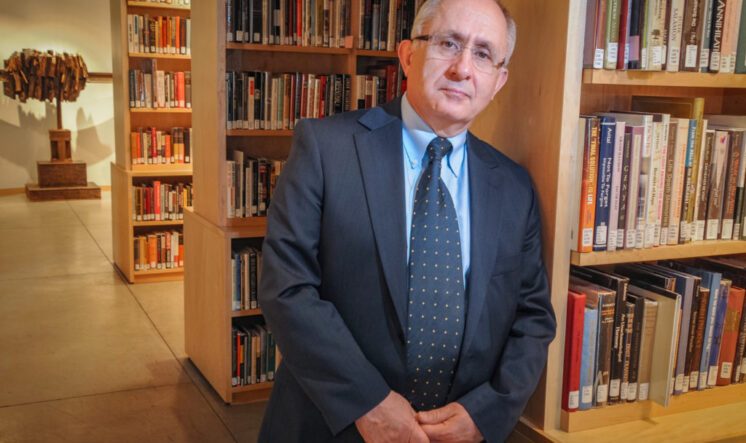
Professor Taner Akçam believes that the Kurds were more driven and active in the extermination of Assyrians than previously thought.
Taner Akçam is a professor of history at Clark University in Massachusetts, USA and has been researching the 1915 genocide for several decades. He is unpopular in Turkey and belongs to the small but growing number of Turkish intellectuals who speak and write about the extermination of Assyrians, Armenians and Greeks in 1915.
In his new book published earlier this year in Turkish titled Ermeni Soykırımı’nın Kısa Bir Tarihi, he has paid some attention to the extermination of the Assyrians and the Kurds in what happened. Akçam believes that the general image of the Kurds as a group exploited and deceived by the Turkish authorities to assist in the extermination campaign is incorrect. The Kurds were in fact active and eager participants who in many cases acted on their own and in defiance of the local Turkish authorities, he says. In support of his argument, he presents in the book a series of telegrams between local Turkish rulers and the government stating that local governors described the Kurds as unstoppable barbarians who slaughter Assyrians and others entirely on their own initiative and for their own objectives.
Based on the historical sources he presents, Akçam believes that the discussion about the role of the Kurds must be nuanced beyond the simplified image that they were used by the Turkish leadership to exterminate the indigenous people in the area. The fact that the Kurds lacked their own central political leadership did not prevent them from deciding to take part in the murder completely voluntarily, he says.
Analysis
The statement made by Professor Akçam is nothing new to most Assyrians who are familiar with the oral stories of the genocide and have heard of the bloodlust that drove many Kurds.
For decades, the Kurdish movement has deliberately exploited the issue of the 1915 genocide in a very cynical way. Firstly, it has declared Kurdish participation in the extermination campaign as something that was entirely due to the Turkish government and cultivated the image of the Kurds as poor people who were exploited. Secondly, it has encouraged Assyrian efforts to draw attention to the genocide for its own political purposes, namely to blackmail its opponent Turkey on the international arena. It is no coincidence that the Kurdish-controlled Dawronoye movement has had Seyfo as its foremost issue since day one. Thirdly, the part of the Kurds who cooperate with the state has used the Assyrian demands on the Turks regarding the genocide to portray the Assyrians as disloyal to Turkey before Turkish rulers and thus has been able to more easily continue to drive the Assyrians away from their lands and property.


